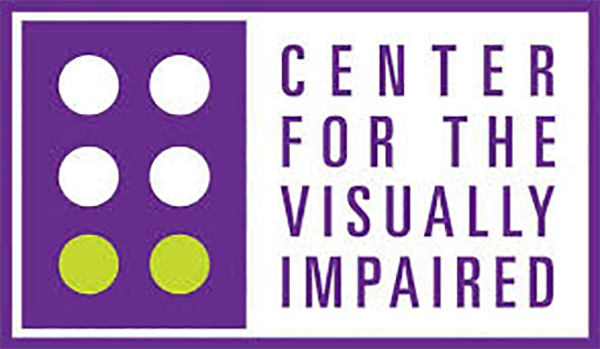Resources
American Foundation for the Blind (AFB) – The AFB removes barriers, creates solutions, and expands possibilities so people with vision loss can achieve their full potential.
American Council of the Blind (ACB) – The ACB is a national organization of blind, visually impaired and sighted individuals whose purpose is to work toward independence, security, equality of opportunity, and improved quality of life for all blind and visually impaired people.
Association for Education and Rehabilitation of the Blind and Visually Impaired (AER)– Supports professionals who provide education and rehabilitation services to people with visual impairments, offering professional development opportunities, publications, and public advocacy.
American Printing House for the Blind (APH)– The world’s largest nonprofit organization creating educational, workplace, and independent living products and services for people who are visually impaired.
Atlanta Regional Commission/ Aging Resources– The Atlanta Regional Commission (ARC) plans and provides comprehensive services to address the needs of the region’s older population.
American Diabetes Association of Georgia & Alabama – A nonprofit agency that addresses the needs of people affected with diabetes through screening, quality comprehensive self-management education courses and medical assistance.
Blinded Veterans Association – BVA serves as ambassadors and mentors for all veterans and their families coping with sight loss.
Council of Citizens with Low Vision International (CCLVI) – CCLVI is here to provide support, resources, education, and advocacy for those who are impacted by low vision and visual impairment.
Financial Aid and Scholarship Resources – Madison Trust compiled this helpful resource for blind and visually impaired students transitioning to college. CVI has not vetted the list and we recommend that individuals conduct their own additional research.
Foundation Fighting Blindness/ Georgia Affiliate- Drives research that will provide preventions, treatments and cures for people affected by retinitis pigmentosa (RP), macular degeneration, Usher syndrome, and the entire spectrum of retinal degenerative diseases.
Georgia Academy for the Blind (GAB)- Provides quality education services to Georgia’s students who have visual impairments or multiple disabilities in order to empower them to achieve their highest level of independence.
Georgia Department of Education/Exceptional Students– The Division for Special Education Services and Supports includes programs and services that support local school districts in their efforts to provide special education and related services to students with disabilities.
Georgia Vocational Rehabilitation Agency-Operates five integrated and interdependent programs that help people with disabilities to become fully productive members of society by achieving independence and meaningful employment.
Georgia Eye Bank- Georgia Eye Bank, Inc. recovers, processes, and provides donor eye tissue for eye surgeries and eye research studies and promotes and provides education pertaining to eye donation.
Georgia Library for Accessible Services (GLASS)– Through the Georgia Libraries for Accessible Statewide Services (GLASS) Georgians have access to a free national library program that offers books and magazines on cassette tape and in Braille.
Georgia Lions Lighthouse Foundation-The Georgia Lions Lighthouse Foundation provides vision and hearing services through education, detection, prevention and treatment.
Georgia Project for Assistive Technology (GPAT)-Supports local school systems in their efforts to provide assistive technology devices and services to students with disabilities.
Georgia Radio Reading Service- A nonprofit closed circuit radio station whose mission is to improve the quality of life for every Georgian who is blind, visually impaired or has difficulty with access to the printed word by broadcasting current information via sub channel radio transmission and streaming on the internet.
Hadley School for the Blind– Promotes independent living through lifelong, distance education programs for people who are blind or visually impaired, their families and blindness service providers.
Helen Keller National Center- The mission of the Helen Keller National Center for Deaf-Blind Youths and Adults is to enable each person who is deaf-blind to live and work in his or her community of choice.
Laws Network – Laws.com features a Text To Voice Tool for visually impaired users to gain access to Legal Forms Videos, Cases, Educational Articles and Laws. It is thier goal to make sure everyone has access to legal information and education.
Learning Ally – Serves more than 300,000 K-12, college and graduate students, veterans and lifelong learners – all of whom cannot read standard print due to blindness, visual impairment, dyslexia, or other learning disabilities.
Lighthouse International/Arlene R. Gordon Research Institute-Fights against vision loss through prevention, treatment and empowerment.
MARTA Reduced Fare Program– MARTA offers Reduced Fare Breeze Cards to eligible senior citizens (65+), people with disabilities, and Medicare cardholders. Follow the link for information on where and how to apply.
National Braille Press- Promotes literacy for blind children through outreach programs and provides access to information by producing information in braille for blind children and adults.
National Eye Institute- Conducts and supports research, training, health information dissemination, and other programs with respect to blinding eye diseases, visual disorders, mechanisms of visual function, preservation of sight, and the special health problems and requirements of the blind.
National Federation of the Blind (NFB)- Improves blind people’s lives through advocacy, education, research, technology, and programs encouraging independence and self-confidence.
Prevent Blindness Georgia- Vision is to preserve a lifetime of sight for all Georgians especially children, seniors, and those without access to eye care through vision screenings, eye exams, and education.”
Senior Services of North Fulton has Transportation Options for Seniors. Adults 60+ living in North Fulton can access no cost transportation for medical and other trips. For those with vision or physcial impairments the service provider will stay until appointment concludes to provide return travel.
United Way of Metropolitan Atlanta– Engages all segments of our community to drive sustainable change in education, income, health and homelessness while continuing to address urgent and basic human care.
VisionAware – Provides practical self-help information and links to a wide range of helpful resources for adults with vision loss, their family members.
VisionServe Alliance– Represent, network and advocate, focusing upon public policy, education, improvement of services and professional growth, for organizations that serve people with blindness or visual impairment and their clients.
